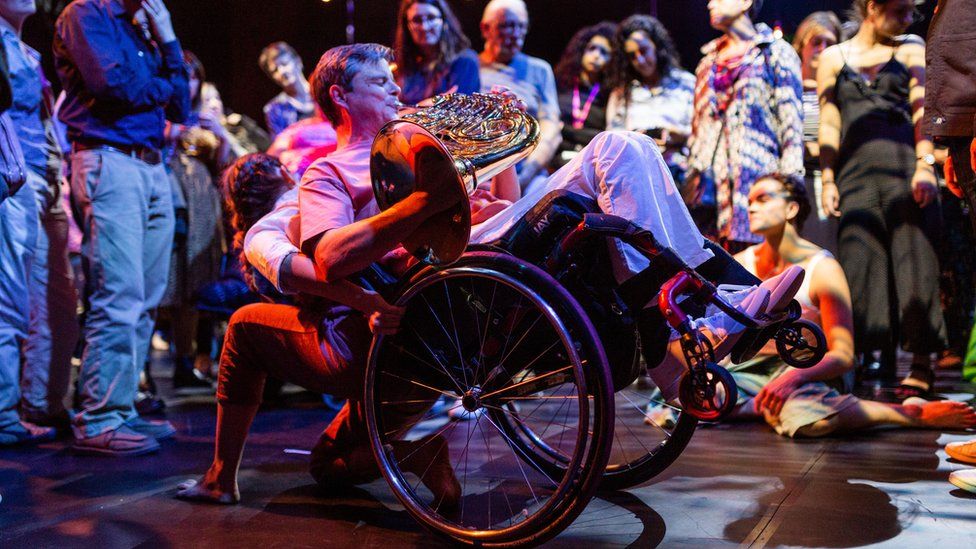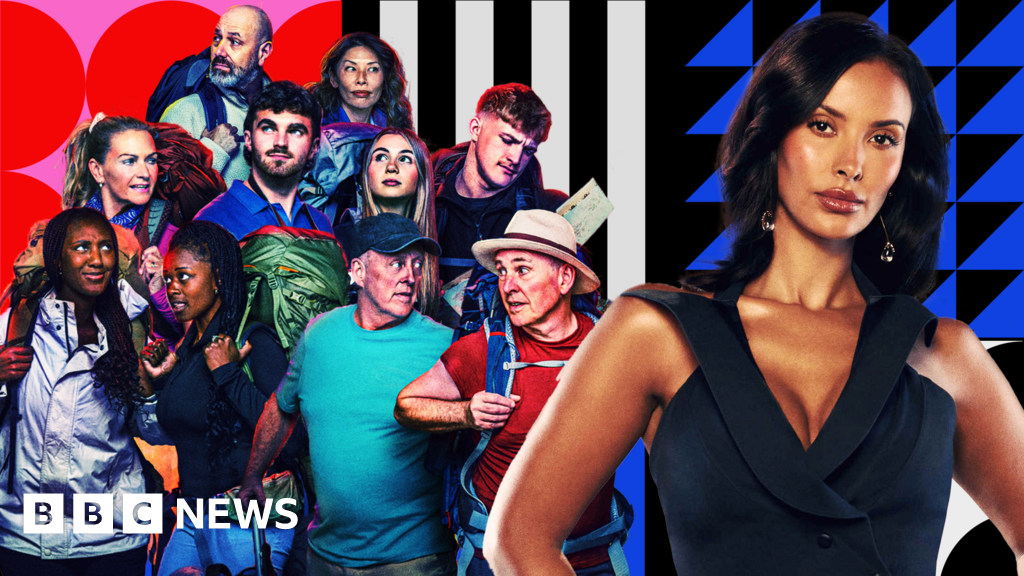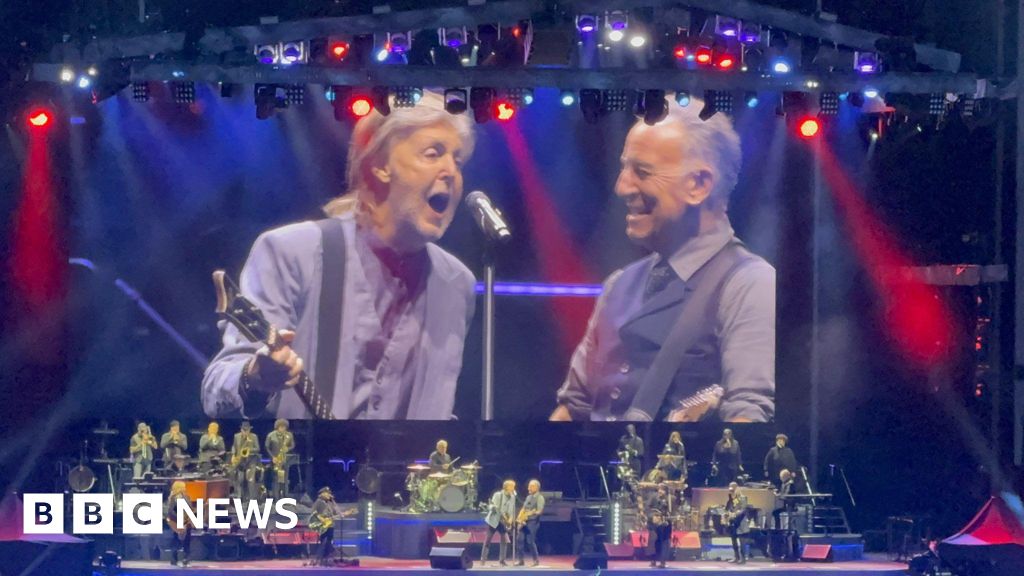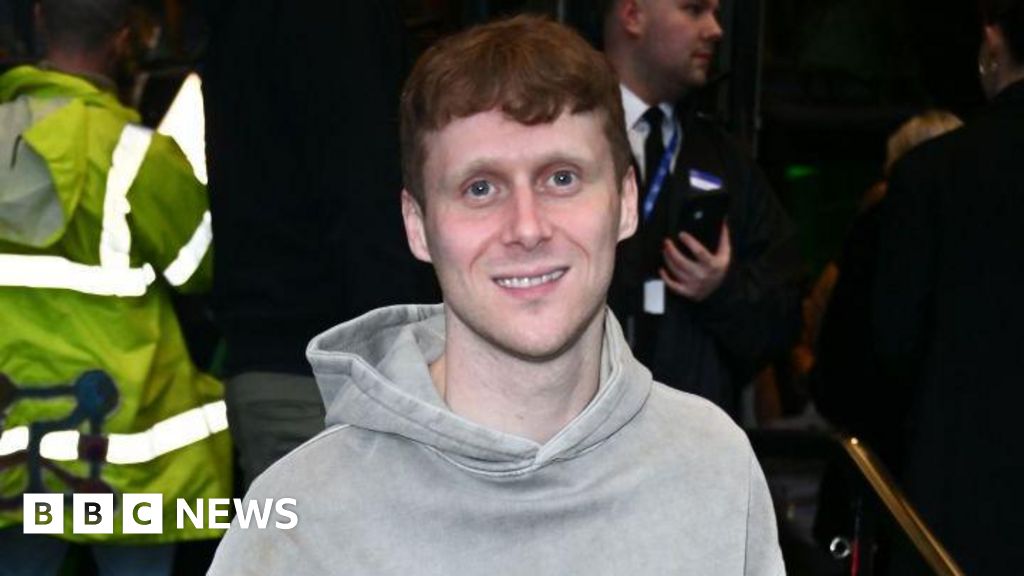ARTICLE AD BOX
By Samantha Jagger & Chris Long
BBC News
 Image source, PAUL BLAKEMORE
Image source, PAUL BLAKEMORE
Paraorchestra's chief executive says headlining Bluedot will be "a defining moment"
Headlining a festival is huge for any musician, but for one unique set of performers, topping the bill this summer could prove to be a landmark moment for an under-represented group of artists.
Paraorchestra describe themselves as "the world's first integrated ensemble of virtuoso professional disabled musicians".
The Bristol-based orchestra, who played The Park stage at Glastonbury in June, will join Mercury Prize-nominated Hannah Peel on the opening night of Bluedot in Cheshire.
The eclectic festival brings together music, science and innovation under the gaze of the iconic Lovell Telescope at Jodrell Bank.
Chief executive Jonathan Harper believes it will be a "defining moment" for Paraorchestra.
"We have had to work so hard to get to this point", he said, having overcome a wide range of challenges from "a lack of access provision" to event programmers "having outdated opinions on whether disabled artists will be good enough".
"Progress in general for artists that identify as disabled continues to be at a snail's pace and I sincerely hope it is the start of serious change," he continued.
"The music sector is, quite rightly, pushing themselves to ensure their line-ups are increasingly balanced by gender and ethnic diversity, but the disabled community hasn't yet had its 'moment' where it feels that real change is happening.
"It's about time that disability is no longer marginalised when talking about diversity."
Image source, York Tillyer
Image caption,Hattie McCall Davies says there "still aren't enough opportunities for disabled musicians to prosper"
Hattie McCall Davies plays cello in the orchestra and says it gave her her "voice as a musician back".
"I lost my career due to my disability and not being able to perform full time in a professional symphony orchestra; Paraorchestra has given it back," she says.
"To be performing on a stage again and bringing music to appreciative audiences... is both a dream come true and one of the most enriching and rewarding experiences."
She says that "across the board, it feels like the musicians on stage are gradually becoming more representative of society", but there is "still so far to go".
"Visibility is so important and there still aren't enough opportunities for disabled musicians to prosper.
"If I had been able to see a professional orchestra like Paraorchestra headlining a major festival when I was studying at the Royal Academy of Music, I might have felt like there was a place for me within the industry.
"As it was, I saw no-one like me and felt like I didn't belong for several years."
Image source, Chloe Hashemi
Image caption,The Musicians' Union says some artists are "compromising their health and well-being to carry on performing"
Steve Varden, who plays a wide range of electronic instruments in the orchestra, agrees that producers, promoters and venues "are becoming more open and accepting towards musicians and performers with disabilities, but we need the access awareness and physical provision to go along with this".
"I know that fully wheelchair accessible stages and dressing rooms are certainly possible, because I have had the relief of experiencing such facilities," he says.
"However, far too many music venue stages and backstage areas are not wheelchair accessible and that really taints the respect that I am able to afford to such places and organisations."
The Musicians' Union (MU) says research is lacking into disability inclusion in the music industry, but steps are being made to change this.
Head of equality, inclusion and diversity John Shortell says an "industry-wide conversation" is ongoing and the union is working hard with disabled musicians and the industry "to create a culture where disabled musicians can ask for the things they need to do their jobs without fear".
"A lot of disabled musicians do not disclose their disability for fear of rejection and discrimination and some impairments are not visible, so we hear of musicians compromising their health and well-being to carry on performing," he says.
Image source, DANDY
Image caption,Dandy says disabled musicians "are seen as a bothersome afterthought"
Dandy, who has been championed by BBC Music Introducing and the Guardian, recorded her first album from her bed after becoming "frustrated at the lack of representation and visibility of disabled people in the mainstream music industry".
She says the orchestra's performance will be a "really positive sign that things are shifting in the right direction".
"The very fact that Paraorchestra are headlining demonstrates that their inclusion is not tokenistic - it will have taken dedicated planning from the organisers," she says.
However, she says accessibility is still a main barrier for her and other disabled musicians and audiences.
"Right now, disabled musicians are seen as a bothersome afterthought," she says.
"Why book a musician with access needs when you can book one without and save the time and expense?
"No-one will say that out loud but it is what it boils down to."
Image source, York Tillyer
Image caption,The orchestra will bring the first night of Bluedot to a close with Mercury Prize-nominated musician Hannah Peel
McCall Davies says until that "lazy and short-sighted" approach is removed and things that are fundamental to disabled musicians are addressed, such as "their ability to access a stage or their need for reasonable adjustments during their training", a "diverse set of musical voices and contributions" to will remain lost to the cultural landscape.
"We actively need to not be discriminating against talented musicians who have a different and unique voice that represents a huge proportion of audiences," she says.
"Until disabled musicians have the access to the stage - both physically and symbolically - and are regularly playing the big time slots... then we won't have achieved equality.
"There's a whole tranche of highly skilled musicians with so much to contribute.
"We just sometimes need a bit of help and good will to make that happen."
Hannah Peel and Paraorchestra headline Bluedot on 21 July.
Why not follow BBC North West on Facebook, Twitter and Instagram? You can also send story ideas to northwest.newsonline@bbc.co.uk
Related Internet Links
The BBC is not responsible for the content of external sites.

 2 years ago
31
2 years ago
31








 English (US) ·
English (US) ·